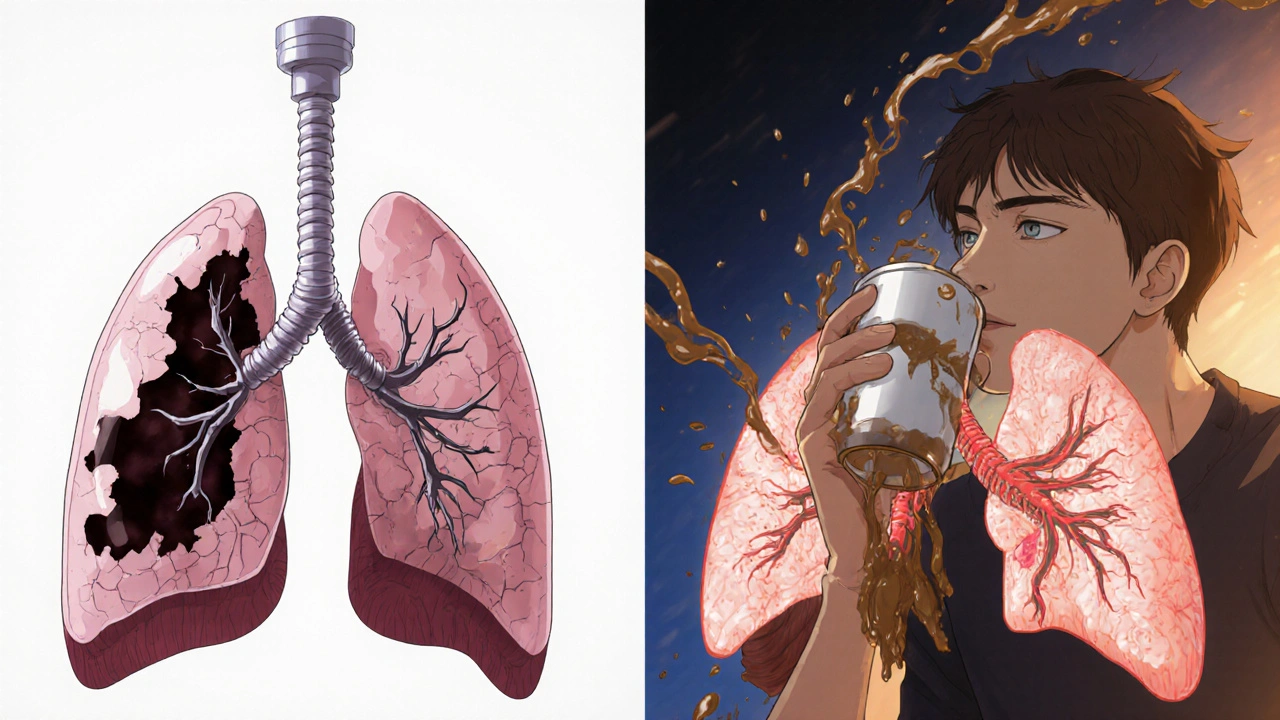Emphysema: Causes, Treatments, and How Medications Help Manage This Lung Condition
When you have emphysema, a type of chronic lung disease that damages the air sacs in your lungs, making it hard to breathe. Also known as chronic obstructive pulmonary disease (COPD), it doesn’t go away—but it can be managed. Most people with emphysema smoke, but long-term exposure to pollution, chemical fumes, or even secondhand smoke can also cause it. The damage is permanent, but stopping smoking and using the right meds can slow it down and help you keep doing the things you love.
Emphysema doesn’t happen alone. It’s often part of COPD, a group of lung diseases that block airflow and make breathing difficult. This means treatments for emphysema overlap with those for chronic bronchitis. You might use bronchodilators, inhalers that relax the muscles around your airways to open them up. Common ones include albuterol and tiotropium. These don’t cure anything, but they help you get air in and out without feeling like you’re suffocating. Some people need oxygen therapy, a simple way to get extra oxygen into your blood when your lungs can’t do it alone. It’s not just for the very sick—many use it daily to stay active and sleep better.
What you take matters. Some meds for emphysema can clash with heart drugs, blood thinners, or even common supplements. You might be on a steroid inhaler, but if you also take something that affects your liver enzymes—like certain antidepressants or statins—it could change how your body processes everything. That’s why knowing your full med list is as important as knowing your diagnosis. And while there’s no magic pill to fix the lung damage, keeping your body strong helps. Eating well, staying active, and avoiding infections can make a bigger difference than you think.
People with emphysema often end up in emergency rooms because of flare-ups—sudden worsening of symptoms. These aren’t random. They’re usually triggered by colds, flu, or air pollution. That’s why getting the flu shot every year isn’t optional. It’s part of your daily care. And if you’ve ever wondered why your doctor keeps asking about your breathing during routine visits, it’s because small changes in how you feel now can predict big problems later.
Below, you’ll find real, practical advice from people who’ve been there. You’ll see how to handle medication interactions, what storage tricks keep your inhalers working, and how to avoid dangerous drug combos that could make your breathing worse. There’s no fluff here—just what works, what doesn’t, and what you need to know to stay in control.
Chronic Bronchitis vs. Emphysema: Key Differences in COPD and How They Affect Treatment
Chronic bronchitis and emphysema are two distinct forms of COPD with different symptoms, causes, and treatments. Understanding which one affects you can lead to better care and fewer hospital visits.

